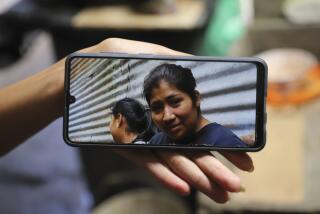$20-Million Project to Assist Brazil’s Neglected Children
- Share via
RIO DE JANEIRO — Calling it a model for programs worldwide, the Inter-American Development Bank and Brazilian officials launched a $20-million project Wednesday to aid this nation’s growing and embarrassing number of neglected, homeless children.
The nationwide program is a departure for the bank, which until a few years ago supported only transportation and energy projects. In recent years, the bank has branched into environmental programs, such as sewer construction and the cleanup of Rio’s Guanabara Bay.
At a signing ceremony, bank President Enrique Iglesias said the agreements should signal to the international community his institution’s increased interest in involving itself in programs affecting local social problems. “These projects can be a model for what Inter-American Development Bank can do in other countries,” he said.
Other officials said the bank decided earlier this year to direct most of its new capital to social programs.
In separate agreements with six cities, the bank will provide $18 million to 34 non-governmental organizations to provide education, housing, job training, day care, health care and recreation for 53,000 homeless or poor children during the next four years. The cities agreed to provide $2 million in funding or services to the organizations.
Bank officials said they accepted proposals presented by Brazil after the first year’s success of an $8-million program to aid homeless children in Rio de Janeiro.
“From the experience that we had in Rio de Janeiro, we want to do more improve the plight of the children,” said a bank spokesman. “We want them treated in a more integrated way with society.”
Although the new grants may appear paltry compared with billion-dollar projects that the bank normally funds, Mendes said: “Obviously, the problem of street children is . . . very big. . . . But the idea is that the $20 million will create models, and while it may look small to some people, it’s quite sufficient for those agencies to work and grow in the next four years.”
The plight of Brazil’s children has long been an international embarrassment; six of 100 children here die before age 1. In the country’s impoverished northeast, where much of the money from the bank’s project will go, one of four youngsters dies before his first birthday.
More to Read
Sign up for Essential California
The most important California stories and recommendations in your inbox every morning.
You may occasionally receive promotional content from the Los Angeles Times.













